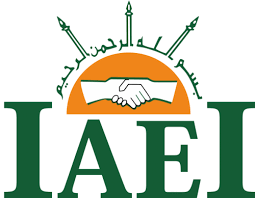salman LITERATUR KEISLAMAN TENTANG SEJARAH AKUNTANSI
LITERATUR KEISLAMAN TENTANG SEJARAH AKUNTANSI
DOI:
 https://doi.org/10.37859/jsi.v8i01.9165
https://doi.org/10.37859/jsi.v8i01.9165
Keywords:
Keywords: Literacy, Islam, Accounting
Abstract
This study examines the development of Islamic accounting from the early days of Islam to modern practices, using an analysis of Islamic literature. The results show that Islamic accounting developed in line with Arab trade culture and the concept of Islamic accountability, and has a strong historical foundation that is not a mimicry of Western accounting.
Downloads
Download data is not yet available.
References
Adnan A, Labatjo I, 2006. Sejarah Akuntanis Dalam Perspektif Islam: Benarkah Luca Pacioli Bapak Akuntansi Modern. Matan, Yogyakarta
Hamid, Shaari, Russel, Craig, & Clarke, F. (1995). Bookkeeping and accounting control systems in a tenth-century Muslim administrative office. Accounting, Business & Financial History, 5(3), 321–333. https://doi.org/10.1080/09585209500000049
Harahap, Sofyan Syafri. (2004). Akuntansi Islam. Jakarta: Bumi Aksara. Khadafi, Muammar. dkk. (2016). AKUNTANSI SYARIAH. Medan:
Madenatera.
Muhammad. (2013). Akuntansi Syariah: Teori & Praktek untuk Perbankan Syariah. Jakarta: UPP STIM YPKN.
Nurhayati, Sri; W. (2011). Akuntansi Syari’ah di Indonesia. Jakarta: Salemba Empat.
Solas, Cigdem; Otar, Ismail. (1994). The Accounting System Practiced in The Near East During The Period 1220-1350 Based on The Book Risale-I Felekiyye. The Accounting Historian Journal, 21, 117–134.
Trokic, Amela. (2015). Islamic Accounting; History, Development and Prospects. European Journal of Islamic Finance, (3), 1–6. https://doi.org/10.13135/2421-2172/1043
Zaid, Omar Abdullah. (2000). Were Islamic Records Precursors To Acoounting Books Based On The Italian Method? Accounting Historian Journal, 27, 73–90.
Zaid, Omar Abdullah. (2004). Accounting systems and recording procedures in the early Islamic state. Accounting Historians Journal, 31(2), 149–170. https://doi.org/10.2308/0148-4184.31.2.149
Sabrina I (2013), Kontribusi Islam Terhadap Akuntansi. Al-Iqtishad: Vol.
V, No. 1, pp 289-304
Hamid, Shaari, Russel, Craig, & Clarke, F. (1995). Bookkeeping and accounting control systems in a tenth-century Muslim administrative office. Accounting, Business & Financial History, 5(3), 321–333. https://doi.org/10.1080/09585209500000049
Harahap, Sofyan Syafri. (2004). Akuntansi Islam. Jakarta: Bumi Aksara. Khadafi, Muammar. dkk. (2016). AKUNTANSI SYARIAH. Medan:
Madenatera.
Muhammad. (2013). Akuntansi Syariah: Teori & Praktek untuk Perbankan Syariah. Jakarta: UPP STIM YPKN.
Nurhayati, Sri; W. (2011). Akuntansi Syari’ah di Indonesia. Jakarta: Salemba Empat.
Solas, Cigdem; Otar, Ismail. (1994). The Accounting System Practiced in The Near East During The Period 1220-1350 Based on The Book Risale-I Felekiyye. The Accounting Historian Journal, 21, 117–134.
Trokic, Amela. (2015). Islamic Accounting; History, Development and Prospects. European Journal of Islamic Finance, (3), 1–6. https://doi.org/10.13135/2421-2172/1043
Zaid, Omar Abdullah. (2000). Were Islamic Records Precursors To Acoounting Books Based On The Italian Method? Accounting Historian Journal, 27, 73–90.
Zaid, Omar Abdullah. (2004). Accounting systems and recording procedures in the early Islamic state. Accounting Historians Journal, 31(2), 149–170. https://doi.org/10.2308/0148-4184.31.2.149
Sabrina I (2013), Kontribusi Islam Terhadap Akuntansi. Al-Iqtishad: Vol.
V, No. 1, pp 289-304






